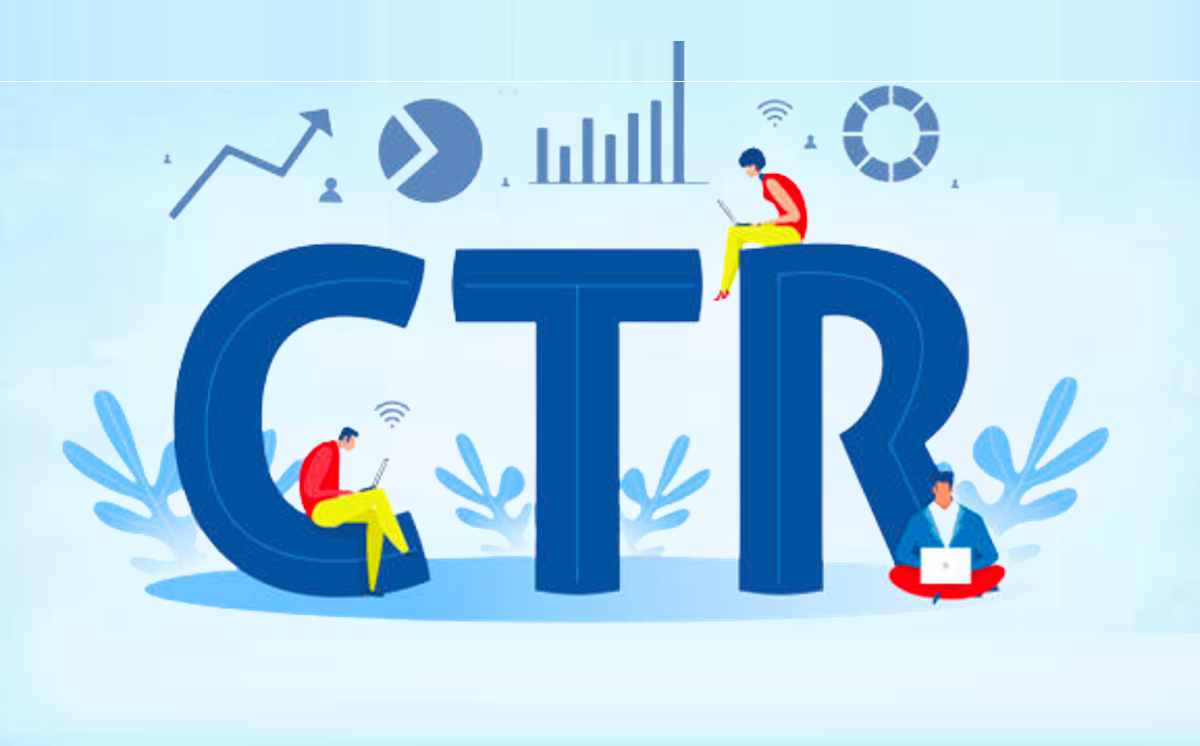CTR Manipulation: The Trick to Dominating Look Outcomes
In the competitive landscape of digital marketing, Click-Through Rate (CTR) control has actually arised as an essential approach for boosting presence in search outcomes. A much deeper exploration into the psychological aspects influencing CTR, along with effective and sustainable methods, exposes an intricate interplay between instant gains and lasting trust fund.
Understanding Click-Through Rate
Understanding click-through rate (CTR) is necessary for reviewing the performance of electronic marketing campaigns. CTR is defined as the ratio of customers that click on a certain web link to the total number of users who view a e-mail, promotion, or page . This metric offers as a critical indication of interaction and the significance of web content to the target audience.
A greater CTR usually signifies that the advertising and marketing strategy is efficiently catching focus and motivating action. On the other hand, a low CTR may suggest that the web content is not reverberating with users, motivating a need for assessment and prospective modification. Elements affecting CTR consist of the top quality of advertisement duplicate, aesthetic allure, and the significance of key words.
Social media advertisements might produce various CTRs compared to look engine outcomes. Thus, a detailed understanding of CTR is essential for achieving and driving conversions business objectives in the affordable digital landscape.
The Psychology Behind CTR
Leveraging psychological concepts can dramatically boost the efficiency of click-through price (CTR) techniques. Understanding the cognitive biases and psychological triggers that affect user actions is critical in crafting web content that resonates with target markets. As an example, the principle of shortage develops necessity; users are extra inclined to click web links that suggest minimal accessibility or time-sensitive deals.
In addition, social proof plays a critical function in decision-making. When users observe others involving with content-- such as with high rankings or testimonies-- they are most likely to do the same, enhancing the importance of presenting positive feedback prominently.
Moreover, interesting curiosity can drive clicks; intriguing headlines that evoke inquiries or emphasize uncommon facts oblige individuals to look for solutions.
In addition, familiarity breeds count on. Constant branding and style throughout systems impart self-confidence, making customers more inclined to click on familiar sources.
Techniques for CTR Improvement
Reliable strategies for enhancing click-through rates (CTR) are necessary for making best use of on-line involvement and driving website traffic. One of the most reliable approaches is enhancing title tags and meta descriptions. Crafting engaging, keyword-rich titles that succinctly communicate the material's value can significantly attract customers to click. In addition, making use of convincing language in meta descriptions to highlight one-of-a-kind marketing points can better boost CTR.
One more strategy includes using rich fragments, such as star rankings, pictures, or various other aesthetic components in search engine result. These enhancements not only catch customer interest but additionally offer beneficial information at a glimpse, making the listing more attractive.
Incorporating a feeling of necessity or exclusivity in phone calls to activity can likewise enhance CTR. article source Phrases like "minimal time offer" or "sign up with now" can prompt instant action from prospective visitors.
Moreover, leveraging A/B testing enables marketers to consistently refine and maximize their techniques. By examining different headlines, summaries, and visual components, organizations can recognize what resonates finest with their target market.

Gauging CTR Efficiency
Determining the effectiveness of click-through rate (CTR) approaches is important for determining the success of online campaigns. Beginning by tracking the overall CTR, which is determined by splitting the number of clicks by the number of impacts.

Furthermore, think about the context of the CTR. A high CTR does not always correspond to success if it does not lead to conversions. Incorporating CTR information with conversion prices supplies a more holistic sight of performance. Eventually, constant monitoring and change based on CTR efficiency is critical for taking full advantage of the influence of digital advertising and marketing methods and attaining long-term success.
Moral Factors To Consider in CTR Manipulation
Navigating the realm of click-through price (CTR) adjustment elevates significant ethical considerations that marketing experts must deal with. While enhancing CTR can boost presence and engagement, it likewise provides the danger of deceptive customers. Moral advertising and marketing techniques demand openness and sincerity; therefore, manipulating CTR through misleading strategies, such as clickbait headlines or misrepresentative material, can wear down trust fund and damages brand name reputation.
Moreover, making use of fabricated means to blow up CTR-- such as utilizing robots or incentivizing clicks-- can breach platform policies and bring about fines, better stressing the relevance of moral compliance. Marketing professionals must think about the long-lasting ramifications of their methods on consumer relationships and the total honesty of the digital marketplace.
In addition, the moral landscape includes the broader effects of data privacy. Accumulating individual data for CTR optimization without click to read more educated approval raises significant honest concerns. It is crucial for marketing experts to take part in responsible information techniques, making certain that consumer personal you can try here privacy is appreciated.
Inevitably, honest considerations in CTR control ask for an equilibrium between service objectives and the dedication to transparency, sincerity, and regard for consumer civil liberties. By prioritizing honest practices, marketing professionals can foster lasting development while preserving trust fund and integrity in the digital area.
Verdict
Finally, while CTR adjustment may use immediate exposure and engagement benefits, it presents significant dangers to lasting trust and compliance with internet search engine guidelines. Sustainable electronic advertising and marketing strategies have to prioritize ethical methods and genuine user interaction, making certain alignment with consumer interests. A well balanced strategy that stresses transparency over misleading techniques will inevitably foster long lasting success in search engine result prominence, guarding brand names versus potential penalties and reputational damage.
In the competitive landscape of digital marketing, Click-Through Rate (CTR) manipulation has emerged as an essential method for boosting presence in search outcomes. CTR is specified as the proportion of customers that click on a details web link to the complete number of customers who see a e-mail, web page, or ad . Conversely, a reduced CTR might suggest that the web content is not reverberating with individuals, triggering a need for assessment and prospective adjustment.Browsing the world of click-through rate (CTR) manipulation raises substantial moral factors to consider that marketers must address. Collecting customer information for CTR optimization without notified consent raises major honest problems.